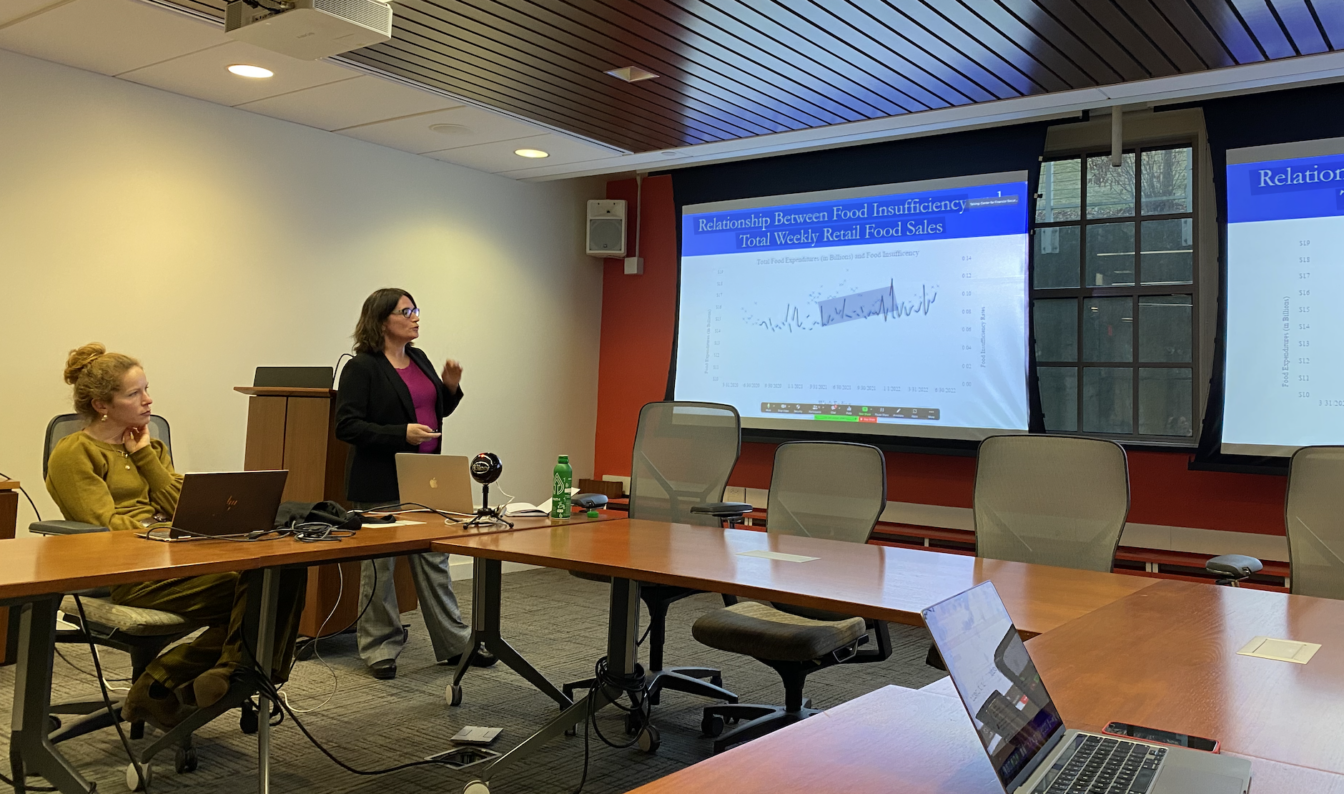Katie Fitzpatrick from the University of Wisconsin Center for Financial Security spoke Thursday about how to address rising food insufficiency following record high inflation and the pandemic.
Several faculty and professors gathered in Nancy Nicholas Hall to hear Fitzpatrick speak about her research on food insufficiency.
The Center for Financial Security hosts this type of seminar every Thursday to discuss research on household finances. The Center has over 50 faculty affiliates from UW plus a similar number of fellows specifically working for the center.
Fitzpatrick said 13.4% of households do not have enough to eat, and food hardship has risen during the pandemic. Additionally, there is a historic demand for food banks. Approximately 30.6% of household income goes to purchasing food, according to Fitzpatrick.
The Center’s research for this week’s seminar was centered around the question “Can ‘Big Data’ on food expenditures be used to predict food hardship?” Fitzpatrick said they can use this data to create models for policy if this is the case. The goal of their research is to create a data dashboard to predict food hardship increases.
Fitzpatrick said it is important to center their research on food because policy can effectively address food security issues.
“Food insecurity is a well studied national statistic capturing food hardship,” Fitzpatrick said.
On a national level, data on retail food sales showed no statistical significance, but general trends appeared, Fitzpatrick said. Overall, household food expenditures tended to go down when they had less food security. And, this more significantly affected large families below the median household income.
Fitzpatrick especially noticed that people spent less on luxury items and more on necessities when they faced food insecurity. For example, the Center did not notice changes on frozen food and beverage purchasing based on insecurities.
Fitzpatrick said the Center is still early in their research, and they hope to keep it moving forward to help with future government policies regarding food insufficiency.
The Center will be continuing this research through next summer, and they hope to publish a paper on household food insufficiency at the end of summer 2023, according to Fitzpatrick.




















